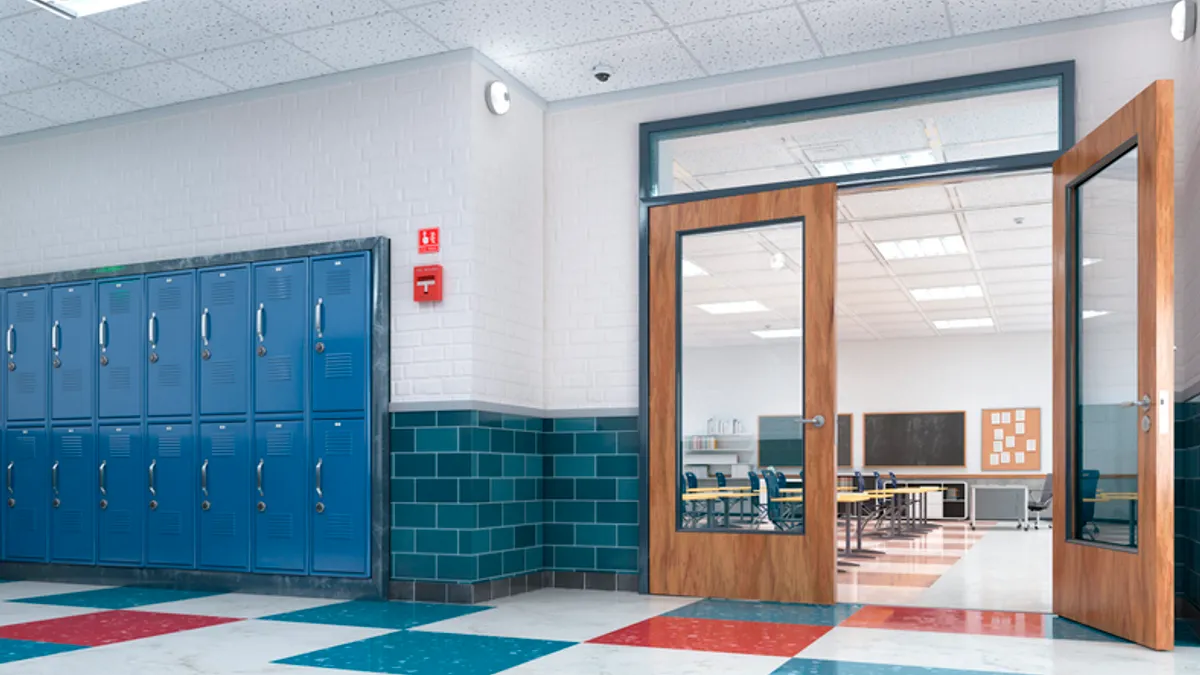During the 2017-18 academic year, Louisiana became the first state to make completion of the Free Application for Federal Student Aid, or FAFSA, a high school graduation requirement. Since then, a handful of other states have followed suit in the hopes of making more students aware of what financial aid is available to them.
College students regularly leave financial aid on the table. The high school class of 2021 missed out on almost $3.8 billion in Pell Grants because they didn’t complete the FAFSA, according to an analysis last year from the National College Attainment Network.
Some states that have adopted FAFSA mandates saw more students complete the form after their laws took effect. In 2018, when Louisiana implemented its mandate, about 70% of high school seniors finished the form by June of that year — making the state a regular leader in FAFSA completions.
While FAFSA completion is associated with higher education enrollment, research is less clear on whether these mandates increase college-going rates. Still, mandates are gaining traction in state legislatures across the country. This year alone, at least four states have taken up FAFSA requirements — Indiana, Oklahoma, Nebraska and Connecticut.
Below, we’re rounding up three other states currently mulling whether to implement the policy.
Michigan
State Sen. Darrin Camilleri, a Democrat, introduced a bill in late August that would mandate high school students complete the FAFSA. Similar to other FAFSA mandates, the bill would allow exemptions for students, including if they aren’t eligible to apply for federal aid.
Exemptions are key for Michigan students uninterested in attending college or who lack permanent legal status in the U.S., according to a March policy brief from The Institute for College Access & Success, a student advocacy nonprofit.
The bill would also require K-12 school districts to teach students about the importance of the FAFSA for accessing federal, state and institutional aid. Many scholarship programs require students to submit the FAFSA.
Under the proposal, school districts would have to help students complete the form, as well as provide them with a list of state-based aid programs that require FAFSA submission. If passed, the bill would take effect for the 2024-2025 academic year.
Pennsylvania
In April, Pennsylvania state Sen. Scott Martin, a Republican, pitched a bill that would establish a FAFSA mandate. Like other proposals, it would make filling out the form a graduation requirement for high school seniors and allow them to opt out with parent or guardian permission.
“In many cases, our students are missing opportunities for higher education because they are unaware of financial assistance and resources that might be available to them,” Martin said in a missive seeking legislative support for the proposal. “They should graduate high school with all the available tools and resources needed to pursue higher education.”
The leader of Pennsylvania’s state higher education system, as well as the president of Pennsylvania State University, both expressed support for a statewide FAFSA policy, according to Martin’s note.
The state’s Senate passed the measure in June, and it has since been referred to the House’s education committee. If lawmakers pass the bill, it would take effect for the 2024-25 academic year.
Massachusetts
In early 2023, Massachusetts state Reps. Andres Vargas and Chynah Tyler, both Democrats, proposed a FAFSA mandate. However, their bill goes a step further than some other proposals by pitching a fund to help students and their families fill out the FAFSA.
The FAFSA is notoriously confusing to complete, though the U.S. Department of Education is developing a simplified version of the form set to be unveiled in December. Higher education policy experts have said funding may be required to link students with counselors who can advise them on how to fill out the FAFSA.
“The graduation requirement appeals to lawmakers as a low-cost intervention, but it’s not without any cost,” Peter Granville, a fellow at The Century Foundation, told Higher Ed Dive earlier this year.
Massachusetts’ bill has not yet gained traction in the Legislature. However, if passed, the fund would be started in October 2025, and the FAFSA requirements would take effect in 2026.
























